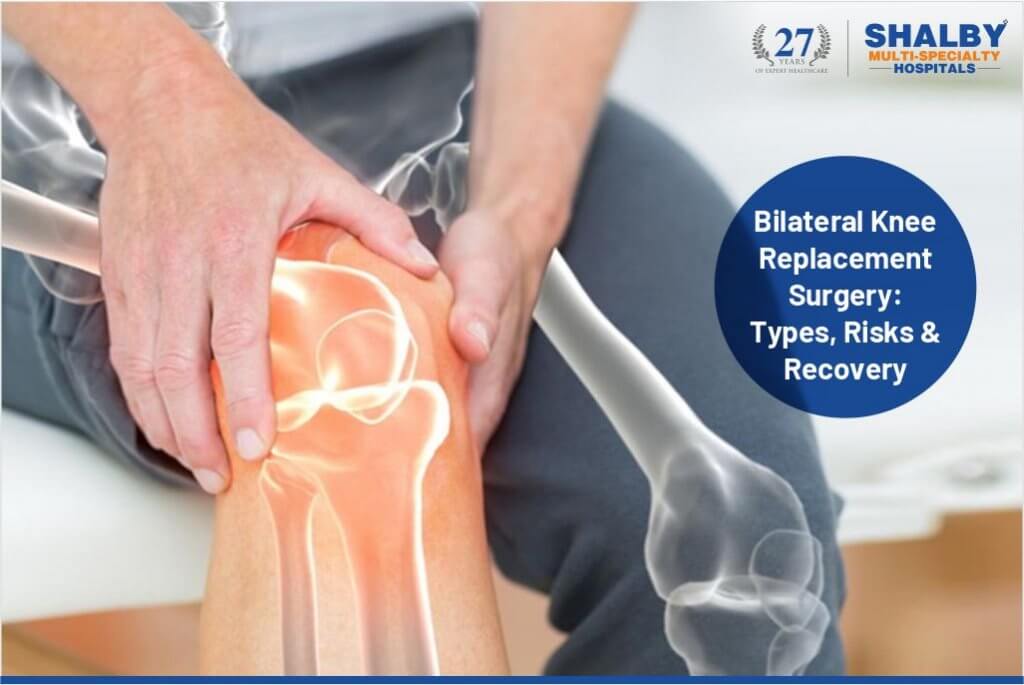
If the pain in your knee is meddling with your everyday routines and bringing down your standard of living, your doctor will likely highly suggest knee replacement surgery. This type of procedure is generally performed on adults over the age of 60, however, some younger individuals might need this too. When both knees are directly impacted by degenerative arthritis, a doctor may advise bilateral knee replacement surgery.
One or multiple procedures may indeed be required for bilateral knee replacement surgery.
Either surgical procedure could include a total knee replacement or a partial knee replacement.
In a concurrent bilateral knee replacement, both of your knees will be replaced at the same time with a simultaneous bilateral knee replacement. The main benefit of a concurrent procedure is there’s only one hospital stay and on the recovery, time frame to heal both knees. However, recovery may take much longer as it is more difficult to use both knees at the very same time. Throughout, many people who’ve had concurrent bilateral knee replacement surgery require help at home while they fully heal.
In staged bilateral knee replacement both knees are replaced in 2 distinct surgeries. These processes are planned a few months apart. This staged method allows one knee to recover before the second knee is operated on.
The major benefit of a staged procedure is that the risk of health problems is lowered. In addition, it necessarily requires a shorter hospital stay. However, as this surgical procedure requires 2 surgeries, this same rehabilitation period may well be significantly longer than expected. This could cause you to miss out on some of your everyday activities.
The succeeding risk factors are associated with both simultaneous and staged bilateral knee replacement surgeries. However, with advancing technology and surgical expertise these have reduced quite significantly.
Individuals are usually taken to a recovery room for a few hours after the surgical procedure before being relocated to your hospital room. After a staged bilateral knee replacement, you’ll be in the hospital for 3 to 5 days, and up to 10 days if you have a concurrently bilateral knee replacement. Medicine will be handed to you to assist with any pain.
All through your hospital treatment, your physician is on the lookout for any evidence of disease, thrombosis, and other possible problems. Your physician will also demonstrate low-intensity workouts that can improve mobility and focus on promoting knee healing. You’ll proceed with physiotherapy soon within a week of surgical procedure, occasionally within several hours, to assist you to transform back to usual knee movement.
Bilateral replacement cost in India can vary from city to city, and also in different hospitals.
When it comes to orthopedic and trauma care, selecting the right hospital can make a significant difference in your treatment outcomes, recovery time, and overall experience. For residents of Vapi and the surrounding areas, Shalby Hospital stands out as the best hospital...
Knee replacement surgery can be life-changing, providing relief to those suffering from chronic knee pain, arthritis, or injury. If you are considering knee replacement surgery in Mohali, it is important to find the best knee replacement surgeons to ensure a successful outcome....
When it comes to orthopedic care, choosing the right hospital can make all the difference. Whether you’re dealing with joint pain, fractures, or any other musculoskeletal issue, the quality of care you receive can significantly affect your recovery process. In Jabalpur, Shalby...